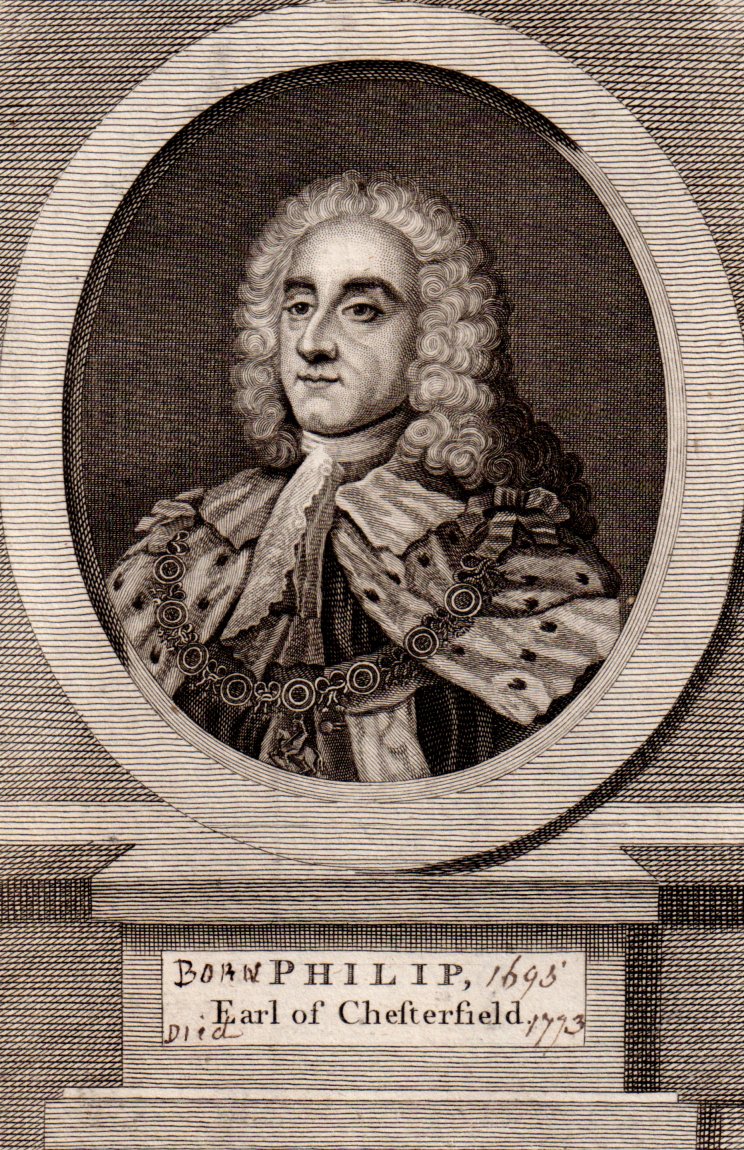Date of Birth: September 22, 1694
Zodiac Sign: Virgo
Date of Death: March 24, 1773
Biography
Philip Dormer Stanhope, 4th Earl of Chesterfield, was an eminent British statesman, diplomat, and writer known for his wit, oratory, and literary contributions. Born into an aristocratic family in London, Chesterfield was educated at Trinity Hall, Cambridge. He began his political career in 1715 as a Member of Parliament and later served as the British Ambassador to The Hague. In 1726, he succeeded his father as the Earl of Chesterfield, which elevated him to the House of Lords. Chesterfield held numerous significant political positions, including Lord Lieutenant of Ireland and Secretary of State for the Northern Department. Though his political influence waned later in life, he is best remembered for his letters to his illegitimate son, Philip Stanhope, which offer guidance on manners, education, and etiquette. These letters were published posthumously and remain celebrated for their elegance and insight.
5 Interesting Facts about Philip Stanhope, 4th Earl of Chesterfield
1. Chesterfield was renowned for his mastery of the English language and his wit, making him a celebrated conversationalist of his time.
2. He served as the British Ambassador to The Hague, where he successfully negotiated the Treaty of Vienna in 1731.
3. Chesterfield was a patron of the arts and sciences and supported the work of notable figures such as Samuel Johnson and Voltaire.
4. His letters to his son, published as “Letters to His Son on the Art of Becoming a Man of the World and a Gentleman,” are considered literary classics.
5. He was instrumental in the construction of Chesterfield House in London, which became a center of intellectual and social gatherings.
5 Most Interesting Quotes from Philip Stanhope, 4th Earl of Chesterfield
1. “Whatever is worth doing at all is worth doing well.”
2. “The knowledge of the world is only to be acquired in the world, and not in a closet.”
3. “Manners must adorn knowledge and smooth its way through the world.”
4. “Wear your learning, like your watch, in a private pocket: and do not merely pull it out and strike it; merely to show that you have one.”
5. “A wise man will live as much within his wit as within his income.”
Highest Net Worth Achieved
Chesterfield’s highest net worth is not specifically documented, but as an Earl and a prominent statesman, he would have had considerable wealth and estates typical of British aristocracy of his time.
Children
Philip Stanhope, 4th Earl of Chesterfield, had an illegitimate son named Philip Stanhope (1732–1768). The younger Philip’s mother was a French governess named Mlle. du Bouchet. Chesterfield’s letters to his son are some of his most famous works.
Relevant Links
4. [Chesterfield House](https://en.wikipedia.org/wiki/Chesterfield_House,_Westminster
5. [The Treaty of Vienna](https://www.britannica.com/event/Treaty-of-Vienna-1731

